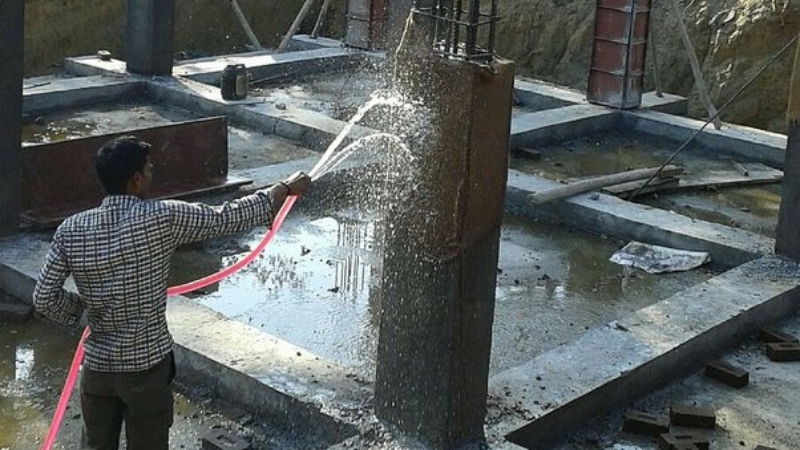
Borewell and Cauvery water for construction purposes is strictly prohibited
It is mandatory for construction projects to utilize only treated wastewater
BWSSB Chairman has empowered the public to report such violations
During the scorching summer months, it is imperative that construction activities adhere to stringent regulations to preserve water resources. The utilization of borewell and Cauvery water for construction purposes is strictly prohibited by BWSSB, emphasizing the necessity for treated water instead. This measure ensures that water, a precious commodity, is conserved and used responsibly.
In line with this directive, it is mandatory for construction projects to utilize treated wastewater, which not only meets quality standards but also mitigates the strain on freshwater sources.
Failure to comply with these regulations carries severe consequences. Any infringement results in the cancellation of the building sanction letter, effectively halting the construction process. Furthermore, the license granted by the BBMP (Bruhat Bengaluru Mahanagara Palike) will be revoked, signaling the gravity of the violation.
To enforce these rules, BWSSB Chairman Dr Ram Prasath Manohar has empowered the public to report such violations. Citizens are encouraged to dial the designated call centre number, 1916, to lodge complaints against erring building owners. This mechanism ensures community participation in upholding water conservation efforts and maintaining accountability within the construction sector.
In essence, these measures underscore the collective responsibility to safeguard water resources and promote sustainable practices in construction activities. Compliance with regulations not only fosters environmental stewardship and water conservation but also contributes to the long-term resilience of sustainable urban infrastructure.

Borewell and Cauvery water for construction purposes is strictly prohibited
It is mandatory for construction projects to utilize only treated wastewater
BWSSB Chairman has empowered the public to report such violations
During the scorching summer months, it is imperative that construction activities adhere to stringent regulations to preserve water resources. The utilization of borewell and Cauvery water for construction purposes is strictly prohibited by BWSSB, emphasizing the necessity for treated water instead. This measure ensures that water, a precious commodity, is conserved and used responsibly.
In line with this directive, it is mandatory for construction projects to utilize treated wastewater, which not only meets quality standards but also mitigates the strain on freshwater sources.
Failure to comply with these regulations carries severe consequences. Any infringement results in the cancellation of the building sanction letter, effectively halting the construction process. Furthermore, the license granted by the BBMP (Bruhat Bengaluru Mahanagara Palike) will be revoked, signaling the gravity of the violation.
To enforce these rules, BWSSB Chairman Dr Ram Prasath Manohar has empowered the public to report such violations. Citizens are encouraged to dial the designated call centre number, 1916, to lodge complaints against erring building owners. This mechanism ensures community participation in upholding water conservation efforts and maintaining accountability within the construction sector.
In essence, these measures underscore the collective responsibility to safeguard water resources and promote sustainable practices in construction activities. Compliance with regulations not only fosters environmental stewardship and water conservation but also contributes to the long-term resilience of sustainable urban infrastructure.
